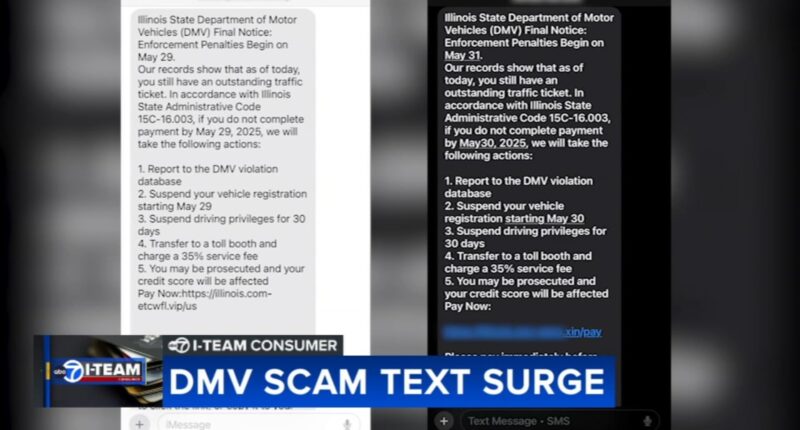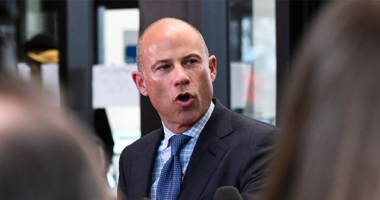CHICAGO (WLS) — A new wave of scam texts is hitting phones across the Chicago area and nationwide.
The ABC7 I-Team is investigating the incredible increase in the intimidating messages.
ABC7 Chicago is now streaming 24/7. Click here to watch
The I-Team recently investigated scam texts related to tollways, and now there is a concerning increase in DMV scam texts. These fraudulent messages threaten individuals with license suspension unless they make payments. It’s important to note that these texts are completely fabricated and intended to deceive victims.
The scam texts have an official appearance, purporting to be from the “DMV.” They falsely inform recipients that they owe money for a ticket or driver’s license and claim that their “driving privileges” will be revoked if payment is not made promptly. However, it’s essential to recognize that these messages are part of a scam.
Karin Zilberstein with the cybersecurity company Guardio said its experts found a 773% spike in the DMV scam texts at the beginning of June.
“They are hitting hard,” Zilberstein said. “We are actually seeing the birth of a new scam.”
However, DMVs don’t collect ticket fines. City and village offices do.
According to Zilberstein, there are various false reasons cited in the texts to pressure individuals into making payments, including mentions of traffic violations and unpaid vehicle registration. These excuses are crafted to manipulate people into paying for nonexistent services.
RELATED | Illinois Secretary of State issues warning about DMV text message scam
The texts can also threaten victims with a “suspended vehicle registration.” The links on the texts go to fake websites that look like official government pages.
Guardio provided the I-Team with some examples, including a fake Illinois site.
“It just looks like it’s a .gov link, but if you look really carefully, that’s not exactly .gov,” Zilberstein said. “It’s .gov with a dash, and a bunch of other stuff.”
Once victim’s click, their data is also up for grabs.
But scammers don’t only want money, they want information.
“The most important piece of information they want is your credit card details, but other information is useful too… to be used for further scamming,” Zilberstein said.
Copyright © 2025 WLS-TV. All Rights Reserved.

















